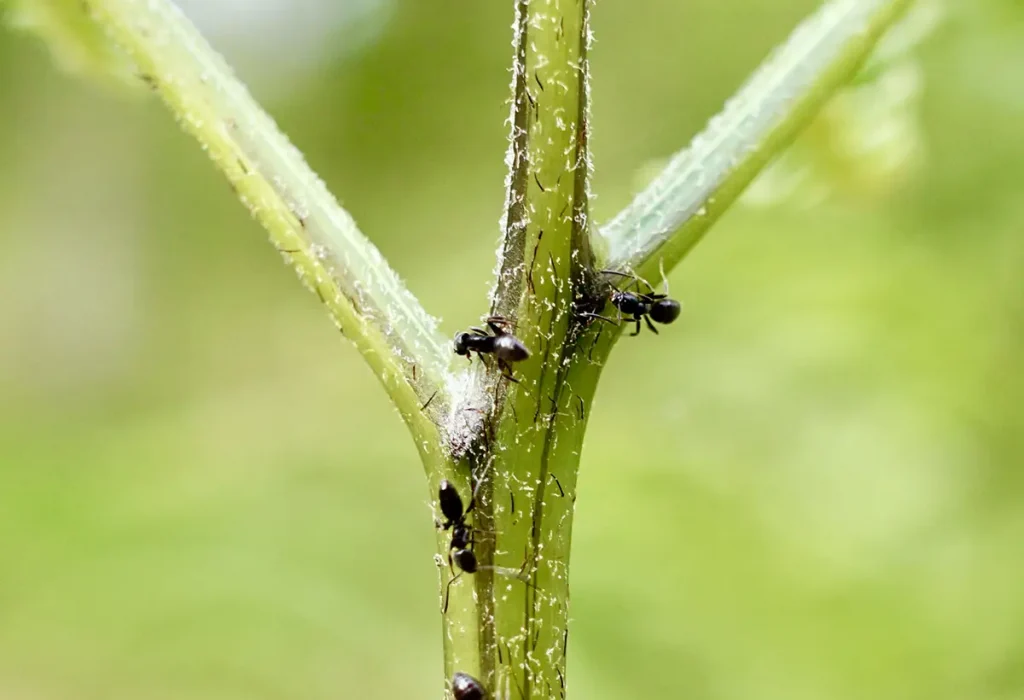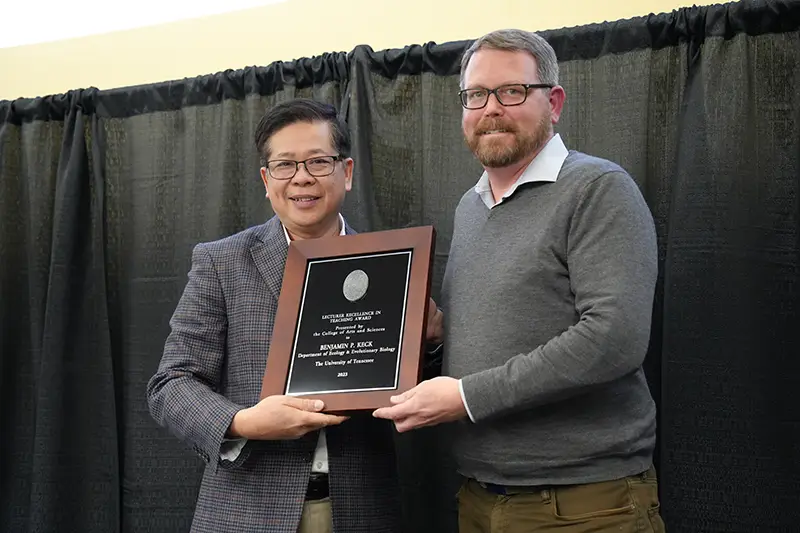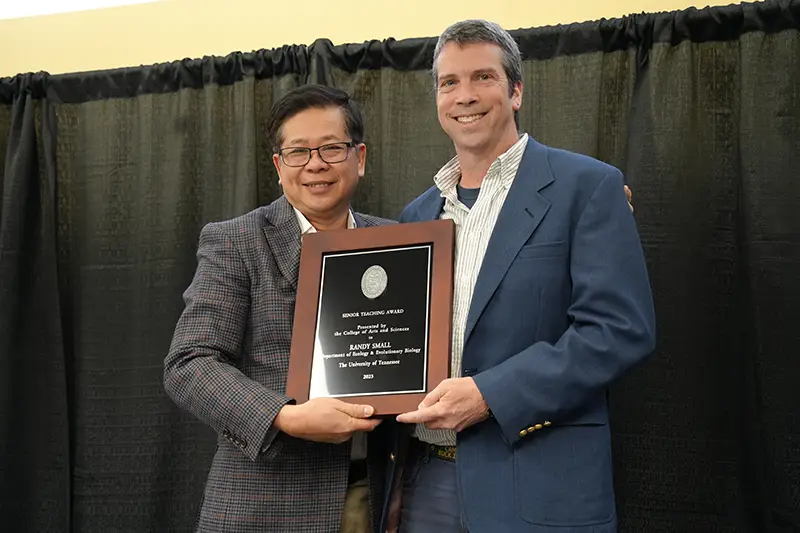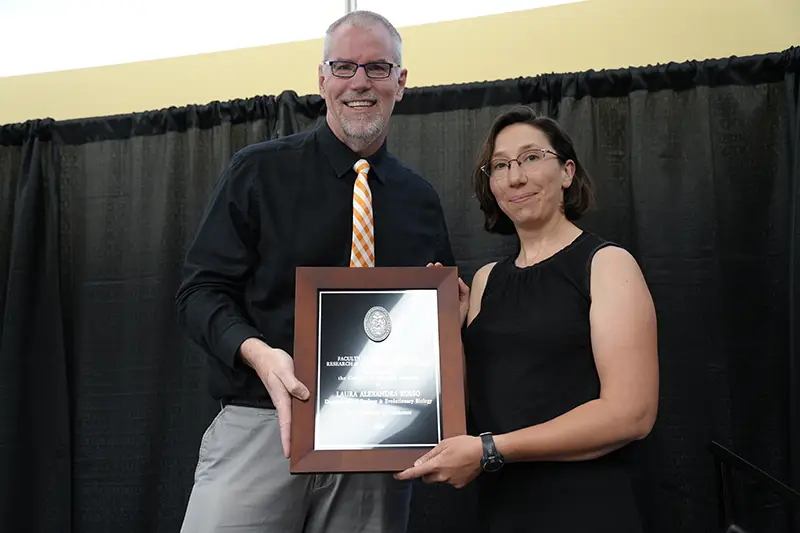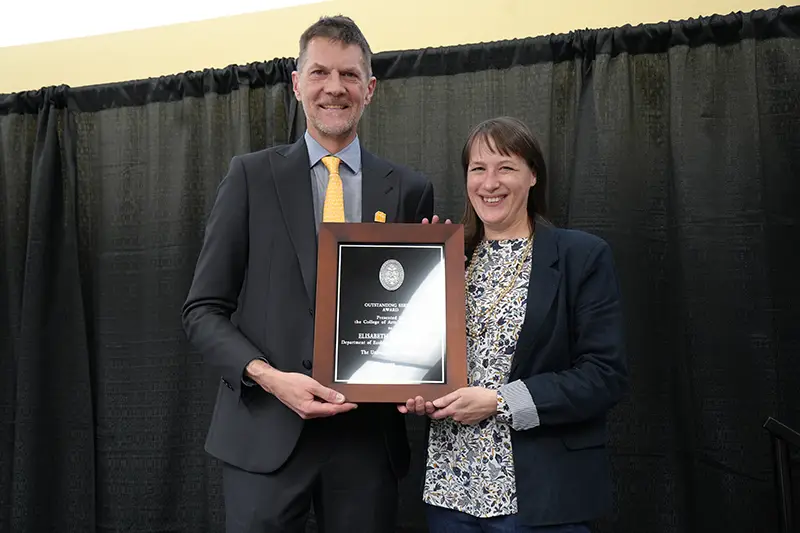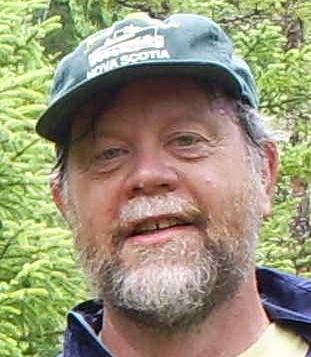Ecological Society of America Awards UT Researchers
Ecological Society of America Awards UT Researchers
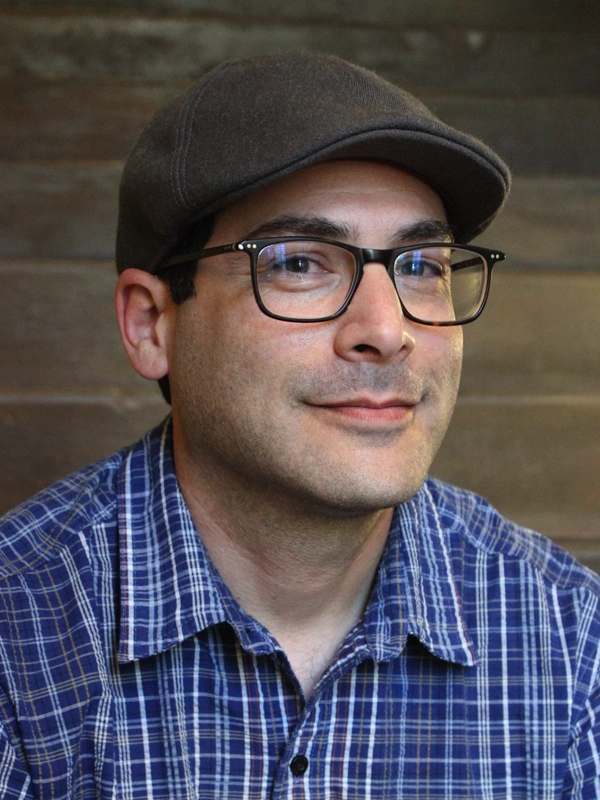
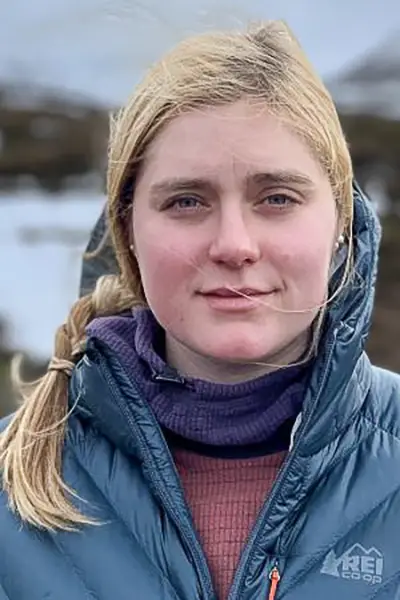
by Randall Brown
Two Vol researchers from the UT Department of Ecology and Evolutionary Biology (EEB) earned honors in the 2024 Ecological Society of America (ESA) Awards. These awards recognize outstanding contributions to ecology in new discoveries, teaching, sustainability, diversity, and lifelong commitment to the profession.
EEB Professor Michael Blum, associate dean for research and creative activity in the College of Arts and Sciences, shared in the ESA’s George Mercer Award, given annually for an outstanding ecological research paper published within the past two years with an early-career lead author.
EEB PhD student Alivia Nytko earned the E. Lucy Braun Award for Excellence in Ecology for her poster presentation at the 2023 ESA Annual Meeting titled, “Plant rarity related to phylogenetic divergence in biomass: Implications for ecosystem function.”
“We are so pleased that our EEB researchers have been recognized by ESA for their scientific achievements,” said College of Arts and Sciences Interim Executive Dean Robert Hinde.
Blum collaborated with lead author Megan Vahsen, a postdoctoral fellow at Utah State University, Associate Professor Scott Emrich from UT’s Tickle College of Engineering, and others on the study “Rapid plant trait evolution can alter coastal wetland resilience to sea level rise,” published in Science in January 2023. Their work calls attention to the significant role of rapid evolution in shaping how ecosystems respond to global change.
They examined a dominant coastal marsh sedge to reveal how genetically based variation in a plant’s traits can evolve rapidly and influence a marsh’s resilience to sea level rise. The team used a unique approach, growing “resurrected” plants from decades-old seeds recovered from marsh soils and employing an ecosystem modeling approach. Bridging quantitative genetics and ecosystem modeling, their study highlights the need to consider evolutionary processes in ecological forecasting.
Nytko’s winning research challenges conventional views on plant rarity by suggesting that rarity might often be an evolutionary adaptation rather than a result of environmental constraints. She used data from 25 Eucalyptus species to examine how natural selection influences plant traits that in turn shape plants’ range sizes and habitat needs. Her findings reveal that rare species are consistently smaller than their more common counterparts and that this trait has evolved multiple times across different groups. Her work highlights potential pathways for promoting conservation of rare plant populations.
“This excellence in ecology award from ESA for Alivia is fitting and well-deserved,” said Professor and EEB Department Head Jennifer Schweitzer. “Alivia is such a creative graduate student and this rarity work with Professor Bailey is innovative and has the potential to change how we think about, predict and manage rare species in nature.”
Nytko’s award is named for E. Lucy Braun, an eminent plant ecologist and one of the charter members of the ESA, studied and mapped North American forests and described them in her book, The Deciduous Forests of Eastern North America.
“It is such an achievement that two researchers in the EEB department have been honored for their work in ecology on the national stage,” said Professor Kate Jones, divisional dean for math and natural sciences. “Alivia Nytko winning the Braun Award for Excellence in Ecology and being singled out for her poster presentation at the Ecological Society of America’s annual meeting is a huge honor. It is also fantastic to see my colleague Mike Blum’s work with Megan Vahsen being recognized in this way.”
ESA will present the 2024 awards during a ceremony at the society’s upcoming annual meeting, August 4–9 in Long Beach, California.
